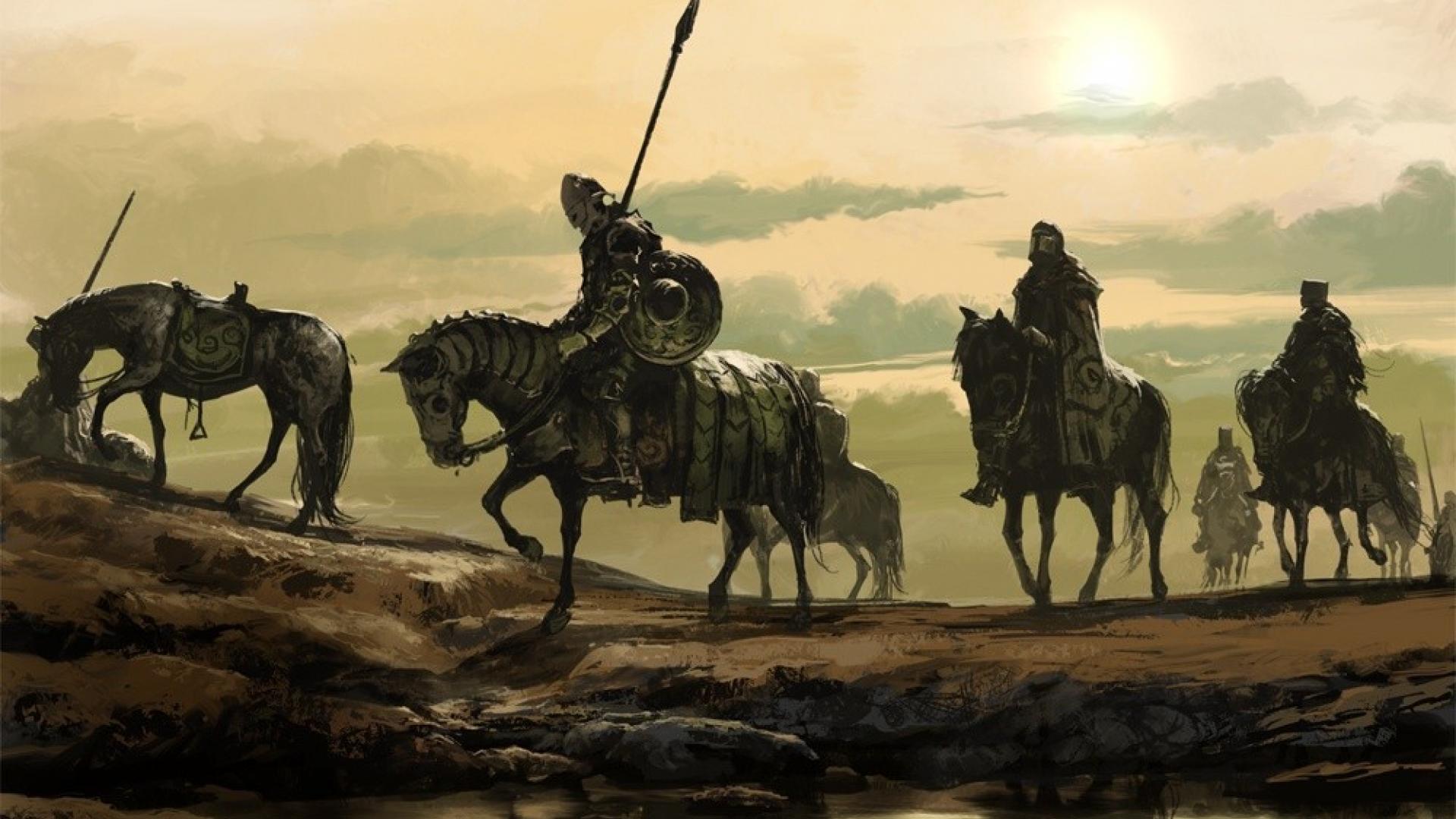Horseback Riding (sage study)
Horseback riding provides the disciplines of managing, driving and vaulting with horses, enabling the character to train horses, administer to their health, and participate in their breeding. This also allows the use of horses in combat, particularly larger and more aggressive horses, as knowledge is accumulated.
Characters without this training are able to "ride" upon horses, but they are not able to manage the animals by themselves. Lacking knowledge, they must rely upon a trained rider or a servant to lead the horse. This is called assisted riding.
Breeds & Size
| Class | Height (hands) | Weight (lbs.) |
|---|---|---|
| draught | 15 to 17 | 1000 to 1500 |
| pony | 14 | 600 to 800 |
| riding | 14 to 16 | 800 to 1100 |
| war (heavy) | 16 to 18 | 1700 to 2000 |
| war (medium) | 15 to 17 | 1000 to 1300 |
| war (light) | 15 to 16 | 1300 to 1700 |
Domestic horses are classified as those intended for work (draught horses), travelling (riding horses and ponies) and combat (warhorses). These are further distinguished by size, physical ability and training. Ponies may be either young horses or certain breeds that are naturally small as adults. Warhorses are larger, so as to support a rider in armour and carrying weapons. Draught horses, while heavy, are bred to be docile and usually move at a walk (a trotting gait could not be long sustained, while the animal would actively resist a canter or a gallop).
The height of horses are often stated as "hands" — one hand is equal to 4 in. The table on the left shows the approximate size of horses; this size is obtained through breeding and diet, and does not correspond to the size and weight of wild horses.
Horses exhibit a diverse array of coat colours and distinctive markings, described by a specialized vocabulary. Often, a horse is classified first by its coat colour, before breed or sex. Horses of the same colour may be distinguished from one another by white markings, which, along with various spotting patterns, are inherited separately from coat colour. Familiar colours include chestnut, black, bay, pinto, dun, grey, buckskin, champagne, cream and palamino. Familiar markings include blazes, stars, stripes and a bald face.
Sage Abilities
Amateur
- Domesticate Horses: gives the basic training to young or feral horses, enabling them to perform as ordinary working animals.
- Horse Feeding & Diet: gives judgment regarding the physical size and needs of horses.
- Horse Handling I: enables the character to direct the horse or ride at various gaits with minimal skill.
- Horse-mounted Combat I: the character possesses enough skill to fight from a warhorse.
Authority
- Horse Handling II: provides the character with greater control in managing the horse's movement and gait.
- Horse Jumping I: permits jumping over low obstacles with a probable chance of success.
- Horse-mounted Combat II: expands the character's effectiveness as a mounted rider.
- Horse Physiology: maintenance and restoration of health in horses.
- Horseshoeing: care of the equine's hoof, including trimming, balancing and the placement of shoes.
- Warhorse Training: gives the basic training to young horses, enabling them to perform as horses effective in combat.
Expert
- Horse Breeding: selecting sires and fouls in order to produce a stock of horse suitable for a specific type of work.
- Horseracing: having the skill for pushing a horse past its ordinary endurance in order to win races.
- Horse Whispering: having the skill for pushing a horse past its ordinary endurance in order to win races.
See Also,
Assassin Sage Abilities
Fighter Sage Abilities
Paladin Sage Abilities
Player Characters
Ranger Sage Abilities
